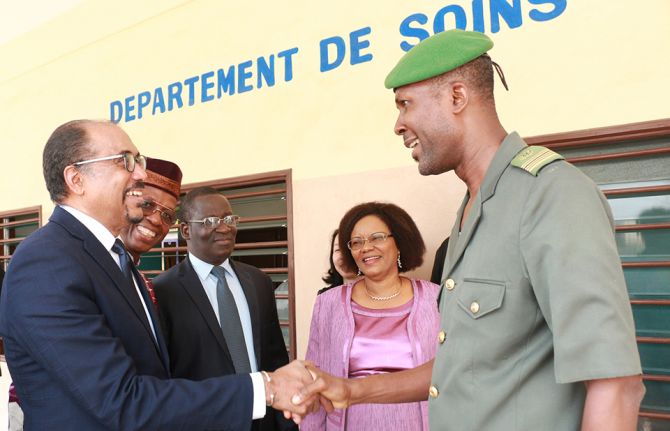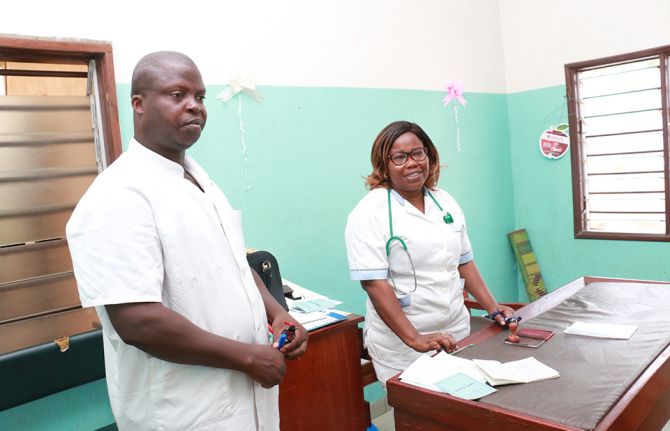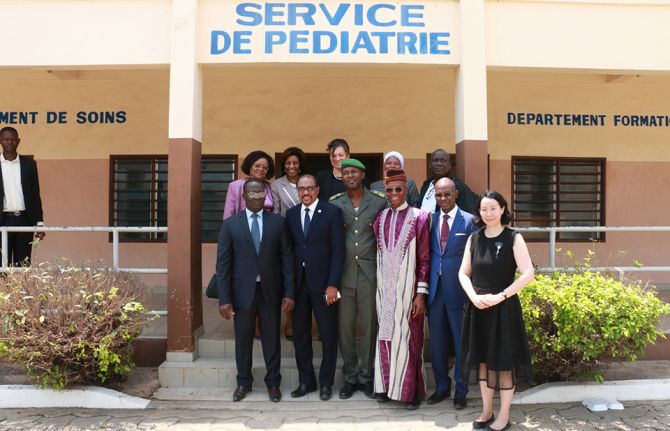



Feature Story
Let’s go
07 March 2017
07 March 2017 07 March 2017The first thing you notice about Colonel Alain Azondékon is that he is always moving. He is tall, head and shoulders above most people, and he uses his whole body to express his feelings. So it will come as no surprise to learn that he ends every sentence with, “Let’s go!”.
The Director of Camp Guezo, the paediatric HIV hospital in Cotonou, Benin, the Colonel has started a new movement for putting young people and families at the centre of care.
After observing traditional check-up visits, he noticed that the children were separated from their mothers by a curtain during the examination. He rearranged the furniture, making sure that the examination table was parallel to where the parents were sitting, so they could always be in eye contact with their little ones and with the doctors and nurses.
That was just the beginning. He noticed that the young people under his care needed more than medicines to lead healthy lives. He introduced psychosocial support to address the stress of living with HIV through adolescence and created a network of young people living with HIV, run by a young man who is also living with HIV.
Talking with the Colonel you get the sense that he has tried to think of everything. “A mother never comes alone,” he pointed out. “She has her children, sometimes the father comes and she has her handbag, which contains her “life”.”
The Colonel made sure that instead of chairs in the examination and therapy session rooms there were small sofas—enough places for the family as well as the mother and her handbag.
It’s the small details, as well as the big mandate, that have made Camp Guezo so successful. Children born with HIV have received care from birth. The paediatric hospital has been able to reduce mortality rates among children living with HIV from 30% to less than 5%.
Some of the patients are now adults with children of their own and have very little interest in moving to the regular health-care system.
“They sometimes call me Papa, and they ask why Papa do we have to go to the other clinic where they don’t know me,” he said.
Soon patients of Camp Guezo could find it easier to transition to other health-care facilities. The Colonel has been asked to help replicate this model in other clinics in Benin.
“This is the kind of people-centred approach Africa and the world is looking for,” said Michel Sidibé, the Executive Director of UNAIDS, as he toured the centre. “Precious resources have been carefully put to work to keep families in a safe environment where they can get the care and support they need.”
There are an estimated 69 000 people living with HIV in Benin. The number of new HIV infections among children continues to fall as pregnant women living with HIV gain access to life-saving antiretroviral medicines to stop babies from becoming infected during childbirth and breastfeeding.



